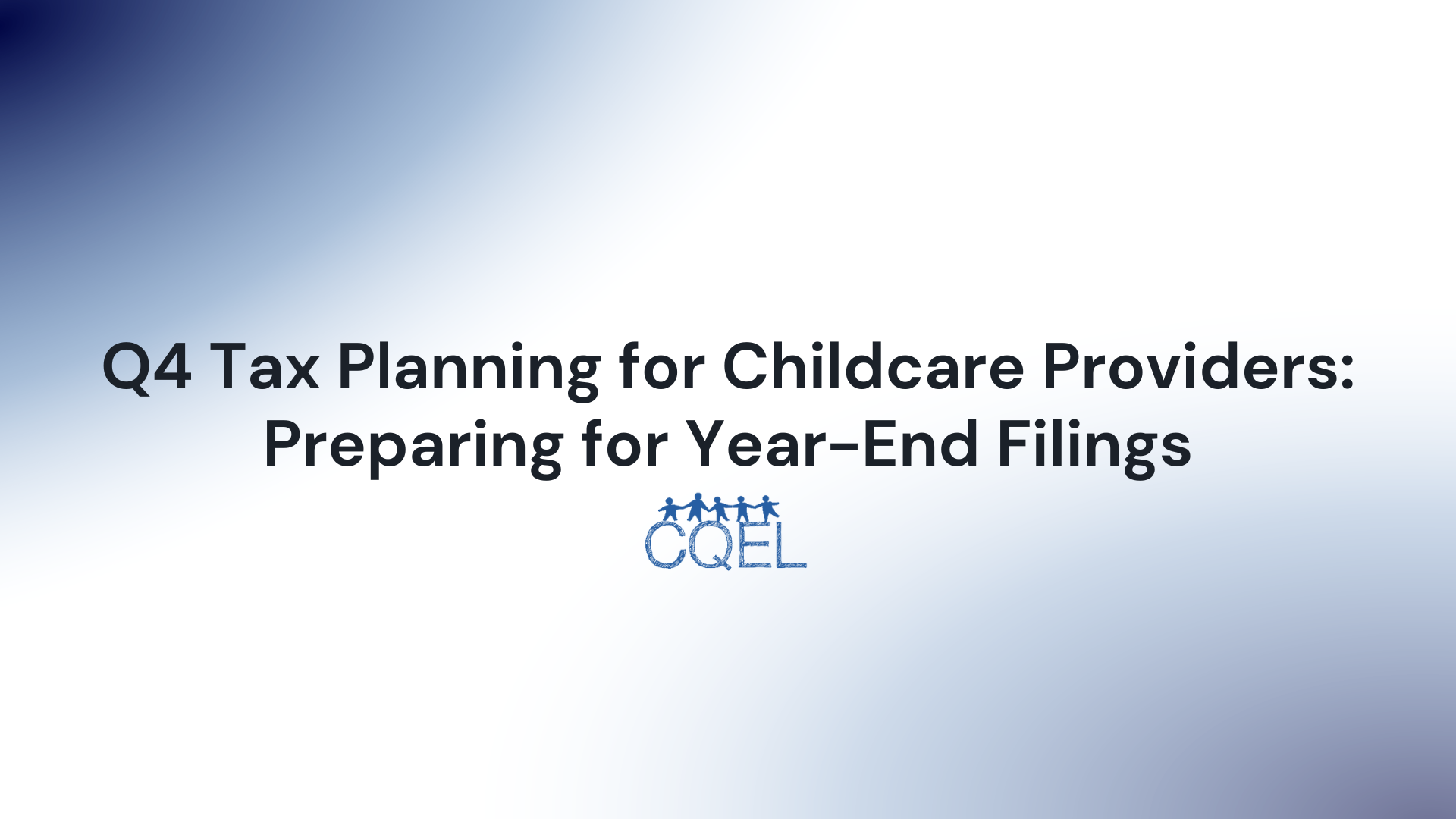Q4 Tax Planning for Childcare Providers: Preparing for Year-End Filings
We aim to outline key considerations and strategies that Californian childcare providers can implement to manage their tax obligations and prepare for year-end filings effectively.

For childcare providers in California, the fourth quarter of the year is a crucial time to get their financial affairs in order. With the end of the year fast approaching, it’s essential to have a comprehensive understanding of your tax obligations and to plan accordingly. Proper tax planning can help you comply with legal requirements and optimize your financial resources. We aim to outline key considerations and strategies that Californian childcare providers can implement to manage their tax obligations and prepare for year-end filings effectively.
Understanding Tax Obligations
Childcare providers in California, like any other business, are subject to various taxes - federal income tax, self-employment tax, state income tax, and possibly local taxes as well. Additionally, you are responsible for withholding, reporting, and paying payroll taxes as an employer. Understanding these obligations is the first step in tax planning. Make use of resources like the IRS website and the California Department of Tax and Fee Administration website to familiarize yourself with the current tax laws and rates.
Expenses and Deductions
Maintaining meticulous records of all your business-related expenses throughout the year is essential. Some common tax-deductible expenses for childcare providers include supplies, food, toys, and equipment. Additionally, expenses related to the maintenance and operation of your facility, such as utilities, property taxes, and insurance, are also deductible. The IRS has a comprehensive guide on deductible business expenses that can serve as a helpful resource.
Estimating Taxes
Estimating your taxes accurately is important to avoid any surprises at the end of the year. This involves calculating the year's expected income, deductions, and credits. Tools like the IRS Withholding Calculator can help with this process. Additionally, consider consulting a tax professional or using tax software to ensure accuracy.
Quarterly Payments
Childcare providers, like other self-employed individuals, are generally required to make estimated tax payments quarterly. Make sure to calculate your quarterly payments accurately and pay them on time to avoid penalties. The IRS provides a form (Form 1040-ES) and instructions on calculating and paying estimated taxes.
Maximizing Tax Credits
Several tax credits, such as the Child and Dependent Care Credit, are available to childcare providers. This credit is available to parents who pay for childcare, but as a provider, you can help your clients by providing them with the necessary documentation to claim this credit. Additionally, there are credits available for businesses, such as the Small Business Health Care Tax Credit. Be sure to research all available credits and take advantage of any that apply to your situation.
Tax planning is a critical aspect of managing a childcare facility. By understanding your tax obligations, keeping meticulous records of expenses, estimating your taxes accurately, making timely quarterly payments, and maximizing tax credits, you can optimize your financial resources and ensure compliance with tax laws. It's always advisable to consult a tax professional or use tax software to ensure accuracy and compliance. Additionally, resources like the IRS and California Department of Tax and Fee Administration websites can provide valuable information and tools to assist in this process.
For further guidance, consider these additional resources:
- IRS Small Business and Self-Employed Tax Center: This section of the IRS website provides a wealth of information, forms, and tools for small business owners and self-employed individuals. IRS Small Business and Self-Employed Tax Center
- California Department of Tax and Fee Administration: This website provides information on state tax obligations and offers various online services for businesses. California Department of Tax and Fee Administration
- Small Business Development Centers (SBDCs): SBDCs provide free business consulting and low-cost training services. Find your local SBDC here. SBDC Locator
Remember, it’s never too early to start planning for your taxes. Being proactive and organized can minimize stress and maximize your financial resources.
